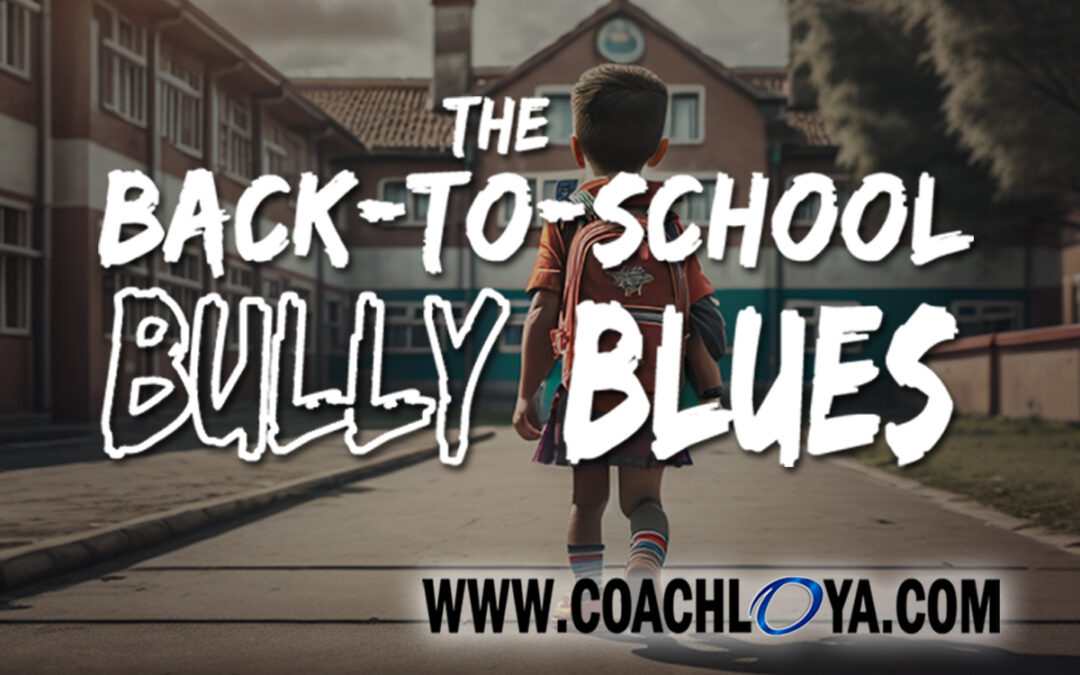Schools where I live returned to classes this week. Yesterday, my daughters filmed their annual “First day of school and we’re gonna be good teammates this year” video—a family tradition ever since my children’s book Be a Good Teammate was first published.
I was walking through a neighborhood park Saturday night and saw some middle schoolers hanging out. I sarcastically asked them if they were excited to go back to school.
To my surprise, they all said they were! They told me they missed seeing their friends and were ready to go back. They showed zero signs of experiencing the back-to-school blues.
Although I was amused by their zeal, I know their response is not the case for every student, especially those who’re bullied. For the bullied, a return to school can mean a return to being bullied.
Bullying is everyone’s problem. It not only affects the bullied students, it affects their families’ wellbeing, their schools’ cultures, and their teachers’ and administrators’ reputations.
In places like Parkland, Florida and Uvalde, Texas, where bullying has led to unthinkable tragedies, entire communities are adversely affected.
Bullying is EVERYONE’S problem. And every one of us should take a vested interest in easing the anxiety of those subject to the back-to-school bully blues.
When I do staff professional development workshops at schools, I emphasize that teaching kids to be good teammates provides them with an attainable, revered identity. Any student can choose to be a good teammate.
The concept transcends size, gender, race, or income. It’s an effective approach to combat bullying because good teammates don’t bully, nor do they tend to be bullied. Good teammates consider how their words and actions affect others before they act or speak.
Good teammates are also quick to express gratitude, give compliments, and lend a helping hand. Others like how good teammates make them feel. By being kind, complimentary, and considerate, good teammates insulate themselves from bullying by building an “army” of appreciative supporters.
There is strength in numbers. What bully would dare go after someone backed by an army of appreciative supporters?
If you know a student who is experiencing the back-to-school bullying blues, remind them: Don’t feed the gators.
 “Gators” equal haters, tormentors, naysayers, bullies, etc. These entities are all after the same thing, an adverse reaction from their target. The more adverse reactions they’re fed, the more aggressively they attack.
“Gators” equal haters, tormentors, naysayers, bullies, etc. These entities are all after the same thing, an adverse reaction from their target. The more adverse reactions they’re fed, the more aggressively they attack.
This simple, memorable advice (“Don’t feed the gators!”) empowers the bullied.
If you’re being bullied for something you have no control over (i.e. your physical composition, your family’s economic standing, your limited wardrobe, etc.), own it.
If you’re being bullied for something you have control over (i.e. your unique style of clothes that you choose to wear, your hair that you choose to dye bright pink, your “geeky” love for math and computers that you choose to enjoy, etc.) own it.
Owning it removes the reaction from the equation and takes power away from the bully.
Instead of wasting time fretting over either of the above situations, follow the good teammate model of insisting on your virtues (i.e. kindness, generosity, honesty, respect, etc.) being your primary identifier. Let the rest remain immaterial, peripheral, and inconsequential.
Doing so will make you a good teammate and bring an end to your blues.
As always…Good teammates care. Good teammates share. Good teammates listen. Go be a good teammate.





